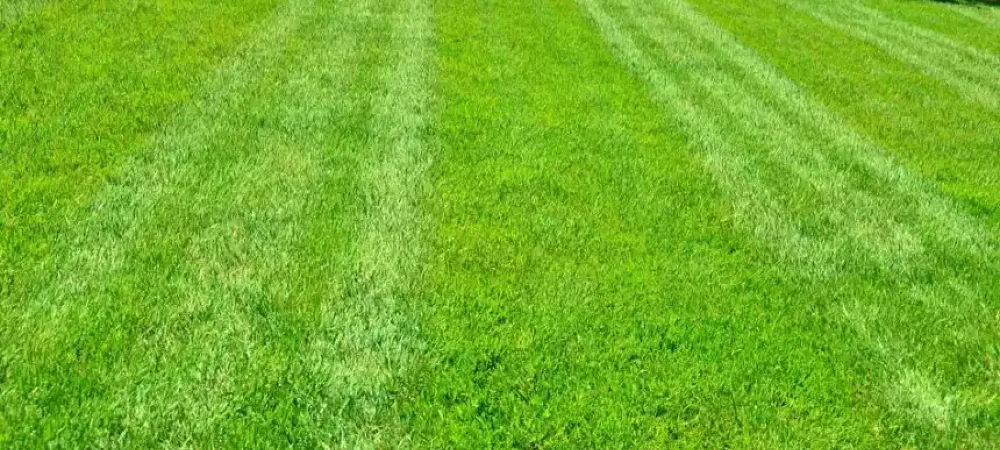Fascinating Facts About Bermuda Grass

Bermuda grass is one of the most popular lawn grasses in the southern United States, and for good reason. Known for its resilience, fast growth, and ability to thrive in hot, sunny conditions, it’s a top choice for both homeowners and farmers. Here’s everything you need to know about this hardy and fascinating grass.
Origins and Popularity
Bermuda grass (Cynodon dactylon) was introduced to the United States through plantings from Bermuda. It quickly became one of the most widely grown turfgrasses, especially across the South, due to its durability and low maintenance requirements.
Before the days of mechanized farming, Bermuda grass was considered one of the most invasive and troublesome weeds by farmers. Today, it’s appreciated for many of the same reasons it was once despised: its ability to spread quickly, thrive in tough conditions, and recover rapidly from damage.
Impressive Durability and Growth
One of the standout traits of Bermuda grass is its incredible resilience. It grows well in:
- Hot, sunny climates
- Poor or compacted soils, including clay and sand
- Areas with limited water
Its deep root system makes it drought-tolerant and difficult to remove without herbicides. Bermuda also recovers quickly from cutting and foot traffic, making it ideal for lawns, sports fields, and pastures.
Growth and Reproduction
Bermuda grass spreads aggressively through seeds, rhizomes, and stolons (runners). Its seed heads are 1 to 3 inches long and typically appear about three months after planting.
- Germination temperature: Begins around 68°F
- Germination time: 1 to 2 weeks after planting
Because of its fast growth and adaptability, Bermuda grass can easily overtake other plants if not properly managed.
Nutritional Value and Agricultural Use
Despite its invasiveness, Bermuda grass is highly valuable in agriculture. It’s:
- Nutrient-rich for livestock, especially cattle and sheep
- Widely used as pasture grass throughout the southern U.S.
It’s the most extensively grown turf and pasture grass in the region.
Varieties and Maintenance
Bermuda grass is available in both standard and hybrid varieties:
- Standard Bermuda: Easier and cheaper to establish from seed
- Hybrid Bermuda: Grown from sprigs or sod, requiring more time and effort to maintain but often results in a denser, more uniform lawn
With proper care—including mowing, watering, and fertilizing—Bermuda grass can stay green and healthy even in challenging weather conditions.
How to Plant Bermuda Grass
Establishing a Bermuda grass lawn requires a few key steps:
- Prepare the Lawn
- Till the soil and remove all existing grass and weeds.
- Apply a non-selective herbicide (e.g., one containing fluazifop, like Grass-B-Gon) to eliminate grass and weed roots.
- Allow about two weeks for the soil to rest and balance before planting.
- Level and Fertilize
- Smooth the soil and apply pH-neutralizing and nitrogen-rich fertilizers (around 1 lb per 1,000 sq. ft.).
- Apply phosphorus fertilizer 3–4 times a year to promote root development.
- Plant the Seeds
- Spread Bermuda grass seed, sod, or sprigs evenly—ideally in a cross-hatch pattern.
- Lightly press seeds into the soil; do not bury them deeply.
- Water regularly to keep the soil moist during germination.
- Continue fertilizing as needed to support healthy growth.
Expert Bermuda Grass Lawn Care Services in Pennsylvania
Maintaining a healthy Bermuda grass lawn takes proper care, including regular mowing, watering, and fertilizing. If you’re in Pennsylvania and want to keep your Bermuda lawn looking its best year-round, Grasshopper Lawns can help. Our expert team provides tailored lawn care services designed to meet the unique needs of Bermuda grass, ensuring your lawn stays lush, green, and resilient through every season. Contact Grasshopper Lawns today to schedule a consultation and take the first step toward a beautiful, thriving yard.
